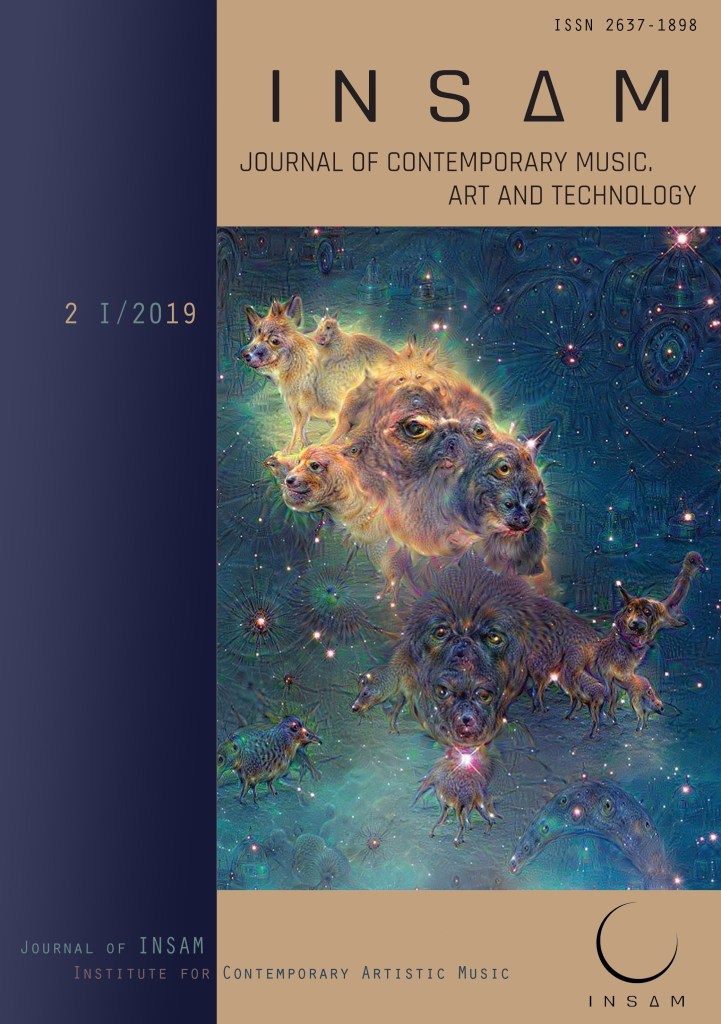Empowering Human Musical Creation through Machines, Algorithms, and Artificial Intelligence – Essay by Gennady Stolyarov II in Issue 2 of the INSAM Journal

Gennady Stolyarov II
Note from Gennady Stolyarov II, Chairman, United States Transhumanist Party / Transhuman Party: For those interested in my thoughts on the connections among music, technology, algorithms, artificial intelligence, transhumanism, and the philosophical motivations behind my own compositions, I have had a peer-reviewed paper, “Empowering Human Musical Creation through Machines, Algorithms, and Artificial Intelligence” published in Issue 2 of the INSAM Journal of Contemporary Music, Art, and Technology. This is a rigorous academic publication but also freely available and sharable via a Creative Commons Attribution Share-Alike license – just as academic works ought to be – so I was honored by the opportunity to contribute my writing. My essay features discussions of Plato and Aristotle, Kirnberger’s and Mozart’s musical dice games, the AI-generated compositions of Ray Kurzweil and David Cope, and the recently completed “Unfinished” Symphony of Franz Schubert, whose second half was made possible by the Huawei / Lucas Cantor, AI / human collaboration. Even Conlon Nancarrow, John Cage, Iannis Xenakis, and Karlheinz Stockhausen make appearances in this paper. Look in the bibliography for YouTube and downloadable MP3 links to all of my compositions that I discuss, as this paper is intended to be a multimedia experience.
Music, technology, and transhumanism – all in close proximity in the same paper and pointing the way toward the vast proliferation of creative possibilities in the future as the distance between the creator’s conception of a musical idea and its implementation becomes ever shorter.
You can find my paper on pages 81-99 of Issue 2.
Read “Empowering Human Musical Creation through Machines, Algorithms, and Artificial Intelligence” here.
Read the full Issue 2 of the INSAM Journal here.
Abstract: “In this paper, I describe the development of my personal research on music that transcends the limitations of human ability. I begin with an exploration of my early thoughts regarding the meaning behind the creation of a musical composition according to the creator’s intentions and how to philosophically conceptualize the creation of such music if one rejects the existence of abstract Platonic Forms. I then explore the transformation of my own creative process through the introduction of software capable of playing back music in exact accord with the inputs provided to it, while enabling the creation of music that remains intriguing to the human ear even though the performance of it may sometimes be beyond the ability of humans. Subsequently, I describe my forays into music generated by earlier algorithmic systems such as the Musikalisches Würfelspiel and narrow artificial-intelligence programs such as WolframTones and my development of variations upon artificially generated themes in essential collaboration with the systems that created them. I also discuss some of the high-profile, advanced examples of AI-human collaboration in musical creation during the contemporary era and raise possibilities for the continued role of humans in drawing out and integrating the best artificially generated musical ideas. I express the hope that the continued advancement of musical software, algorithms, and AI will amplify human creativity by narrowing and ultimately eliminating the gap between the creator’s conception of a musical idea and its practical implementation.”

One thought on “Empowering Human Musical Creation through Machines, Algorithms, and Artificial Intelligence – Essay by Gennady Stolyarov II in Issue 2 of the INSAM Journal”
The timing of this posting could not have been better. I am an aspiring musician/composer, having earned a B.A. in music from UNC Asheville (specialized in composition), and am recently revisiting the relationships of music with science, mathematics, technology, and creative innovation. Your paper spoke to all of my current interests at once, and especially my concern with utilising the advancements of AI/machine learning for assisting me in artistic invention without feeling I am “cheating” or writing music “without a soul”. I hope to read more writings from you further exploring the relationships of music and tech, as well as explore your library of compositions.